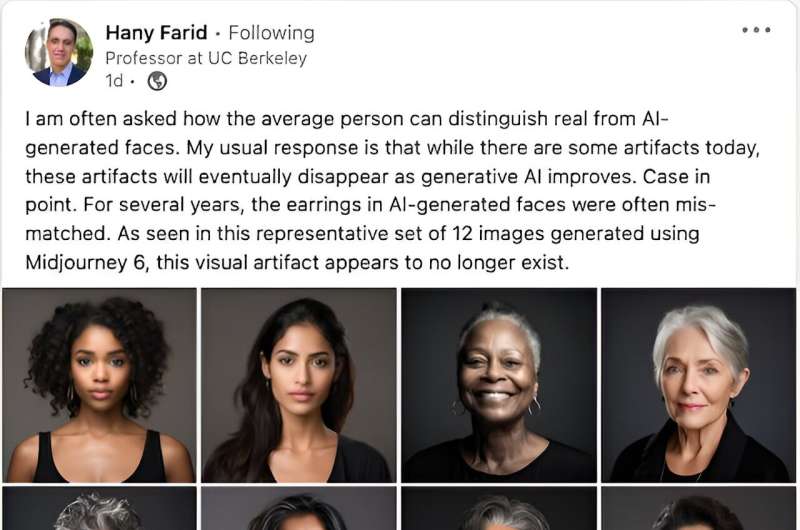
The World Economic Forum's Global Risks Report 2024 has issued a stark warning: misinformation and disinformation, primarily driven by deepfakes, are ranked as the most severe global short-term risks the world faces in the next two years.
In October 2023, the Innovation council of Québec shared the same realization after months of consultations with experts and the public.
This digital deception, which leverages artificial intelligence and, more recently generative AI, to create hyper-realistic fabrications, extends beyond being a technological marvel; it poses a profound societal threat.
In response to the gap in effectively combating deepfakes with technology and legislation alone, a research project led by my team and I sheds light on a vital solution: human intervention through education.
Technological solutions alone are inadequate
Despite ongoing development of deepfake detection tools, these technological solutions are racing to catch up with the rapidly advancing capabilities of deepfake algorithms.
Legal systems and governments are struggling to keep pace with this swift advancement of digital deception.
There is an urgent need for education to adopt a more serious, aggressive and strategic approach in equipping youth to combat this imminent threat.
Political disinformation concerns
The potential for political polarization is particularly alarming.
Nearly three billion people are expected to vote in countries including Bangladesh, India, Indonesia, Mexico, Pakistan, the United Kingdom and the United States within the next two years.
Disinformation campaigns threaten to undermine the legitimacy of newly elected governments.
Deepfakes of prominent figures like Palestinian American supermodel Bella Hadid and others have been manipulated to falsify their political statements, exemplifying the technology's capacity to sway public opinion and skew political narratives.
A deepfake of Greta Thunberg advocating for "vegan grenades" highlights the nefarious use of this technology.
Meta's unveiling of an AI assistant featuring celebrities' likenesses raises concerns about misuse and spreading disinformation.
Financial fraud, pornographic harms
Deepfake videos are also, unsurprisingly, being leveraged to commit financial fraud.
This article is republished from The Conversation under a Creative Commons license. Read the original article.![]()
Citation: Deepfakes: How to empower youth to fight the threat of misinformation and disinformation (2024, January 29) retrieved 29 January 2024 from https://techxplore.com/news/2024-01-deepfakes-empower-youth-threat-misinformation.html
This document is subject to copyright. Apart from any fair dealing for the purpose of private study or research, no part may be reproduced without the written permission. The content is provided for information purposes only.
